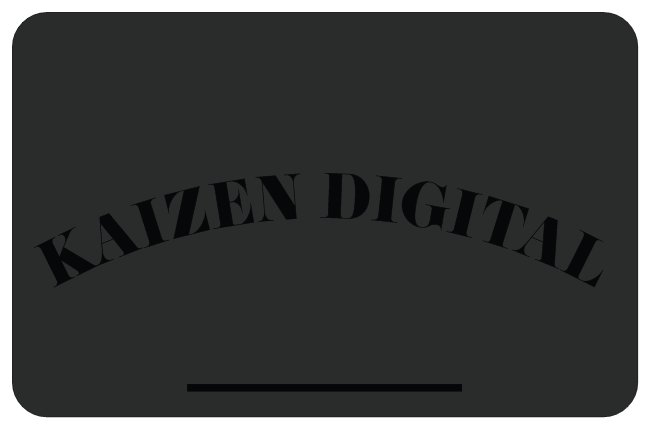I’m not looking to say one is actually the better option than the other here, this is simply me saying “this is where apps can add MORE value than your website!”
Right now, mobile usage will be SOARING. With the sheer amount of people unable to work from office premises, it’s all too easy for people generally to pay a little more attention to their smartphone. If there was EVER a time to be utilising mobile channels to attract new clients or candidates – its now!
Larger firms might be able to have the luxury of both web and app platforms, whereas some may have to make a choice, and that choice will ultimately come down to factors of cost, usability, target audience and the relevant features required.
Having said that, there are studies that suggest people prefer app over sites (generally) which is a strong case for the creation of such apps for your business.
There are other reasons too, reasons that in my “humble” opinion make apps better that websites (my own app is currently in development at the time of publishing).

So, without further a due, here’s my top 10.
#1: Personalisation Is Better With Mobile Apps.
Mobile apps make it easy for your users to have a personalised experience, especially if you create functions that are customisable by the user.
You can also observe/track usage, and data is king when it comes to targeted marketing.
#2: Sending Notifications Is Easy!
Email…so last year!
Over-emailing leads to loss of effectiveness – opening and click rates are less than overwhelming!
Enter push and in-app notifications… the non-intrusive, instant way to reach your audience. Push not’s can have open rates in excess of 40%!
- Hot Jobs
- Star Candidates
- Timesheet Reminders
- Invoice Reminders
And so on…..
#3: Exploiting Mobile Features
Apps make it easy to create an interactive experience, utilising the phone’s GPS, camera, contact list, etc etc.
Also – these features can be used to reduce users’ efforts, uploading ID from within the app for example.
#4: Offline working ability
One of the most fundamental differences is apps allowing basic content and functionality offline. Obviously the available features will depend on the audience, the point being that a connection isn’t always required.
#5 Design Freedom
Apps can be designed to use a variety of elaborate gesture-based functions, swiping, pinching, dragging, etc, the benefit of which translates to an innovative experience for your user to perform tasks better than on a website.
6#: Fresh Branding
Thinking about relaunching your brand or launching a new entity and want to test the water with different styles/appearances etc? Do it with an app.
You can experiment because, as a separate entity to the website, the app won’t impact the design/structure if existing websites.
Want to play around with the internal linking/structure/nav of your site without jeopardising SEO? Roll out your ideas via the app for feedback.

7#: More Time Is Spent On Apps.
According to Forbes, mobile users spend 86% of there entire mobile time on apps, compared to (obvs) 14% on mobile websites!
Build an app, capture that screen time!
#8: New Conversation Opportunities
Because of the nature of apps (the targeted audience) it can be easier to drive engagement, and in turn feed users through a conversion funnel.
Mobile/Browser websites on the other hand will typically reach a more diverse audience. With clients and candidates in mind, the content each user sees can be tailored. Have different content in different user profiles. Easy!
#9: Presence Of Your Brand
Subconsciously, the presence of your little app logo on your user’s phone will “brand” your business into their psyche. You never know when they might be in a convo discussing the services a firm like yours can provide then BAMMM, “I’ve got an app that could....”
This presence can in some ways be linked to Signal Detection Theory – which basically says that people can process in their minds, ads that they’ve in some way ignored previously.
#10: Speed
Load speed, connection speed, task execution speed, can all work quicker on apps.
Storing preferences for example will reduce the time of some tasks to complete.
Locally-stored data is quicker to access so load times are generally faster.
Mobile app framework can typically run 5x faster than Javascript…the technical justification!
So while the background is optimisied for speed, it means the front-end experience is often quicker ‘n’ slicker!
So, given all that, what choice should you make?
IF you can do both, do both. If you’re restricted by budget or business goal, you’ll likely have to choose.
Both have pros and cons but in terms of conversion and personalisation – apps FTW.
If you want to know more, get in touch, or go to https://kaizen-digital.com/mobile-app-development/ for more info.
If you know anyone who needs to see this give it a share.
Take care, stay well!

Recruitment agencies spend a lot of their time and budget advertising jobs on various job boards and quite often overlook other forms of investing in recruitment advertising.
There are numerous reasons behind this behaviour, from budget limitations to a lack of knowledge on how to run paid campaigns or even limited awareness of the benefits PPC job advertising can bring the recruitment industry.
So, what is PPC advertising and how can your recruitment agency use it within its recruitment marketing strategy?
PPC advertising
Let’s focus on one of the most popular options for digital advertising – PPC campaigns on Google.
PPC stands for Pay Per Click, which means that you will pay a set amount of money every time someone clicks on your advert. The price per click varies depending on the platform you decide to use, your targeted audience, or even the time of day or day of the week, amongst many other factors. You can usually get the estimated costs beforehand making it easier for you to set up your plan and control your overall budget.
Target the right people
Recruiters don’t usually consider PPC for recruitment advertising, missing an effective opportunity to reach new candidates. With a pay-per-click job posting campaign you can select a set of keywords to bid on, how much you want to spend on the campaign and even which geographical location the job advert is going to be displayed. This is a very effective method as you can decide when and where your ad is going to be displayed. You have better control of who can see your job offer which will give you better conversions and interactions from the users that see your advert.
Job adverts on Google
Some recruiters might think that it’s too expensive and competitive to advertise their jobs on Google and that there is no chance of winning against the big job boards. However, when we did our own keyword research to find out how expensive it can be, we found that what most recruiters fear it’s not usually the case. As an example, if we take the keywords ‘accounting jobs’ or ‘engineering jobs’ the cost is £0.37 and £0.47 respectively, which is not a bad price considering that these are very generic phrases. In some of our campaigns we achieved a conversion rate of 8%-23%, driving the right candidates to the website, who in turn are keen to apply for jobs, subscribe to job alerts or just browse the services on your website.
How can recruiters use PPC?
If you are a recruitment agency that specialises in a niche market, your keyword competitiveness and cost might be even lower than you expect. With many jobseekers starting their job search on Google this is the right platform to reach more candidates.
By using Google adverts you can also retarget users that visit your website, redirecting them back to it or to specific job description pages. For example, you can send a ‘Software Developer Job’ advert to users who performed searches on your website related to this job.
Recruitment advertising to source candidates
Where advertising on job boards is a very good strategy to attract active job seekers, PPC for recruitment advertising on Google or retargeting Google ads allow you to reach PASSIVE candidates. These candidates might not necessarily search for new job opportunities every day but might be willing to send their CV if they spot a good job opportunity.
Useful tips for your PPC recruitment advertising
- If you want to advertise on Google you will need a Google Account;
- Before you start creating your PPC recruitment campaign, do some research about the audience size and type you want to reach;
- If you advertise on Google check specific keywords popularity and their competitiveness;
- Try to target users who search for longer key phrases, for example ‘software developer jobs London’;
- When you drive people to your landing page make sure the content is relevant to your advert. It will increase the chances of further interactions from users who will apply for a job or register;
- Add monetary value to your conversions in Google Analytics, this will make it easier to analyse your ROI.
Targeting searches and people with specific skills maximises the chances of receiving job applications from the right candidates. This is a good method to not only get more applications to your jobs but also as a way to increase your brand awareness!!!
If you need help to get quick leads cost effectively just drop me a line.
Remember though – tread carefully. With Paid Search as soon as you stop any budget you will stop seeing results. This is where SEO is beautiful… SEO results are known as “evergreen” in as much as the results will stay long after the work has been done – you just need to maintain them with TLC.
